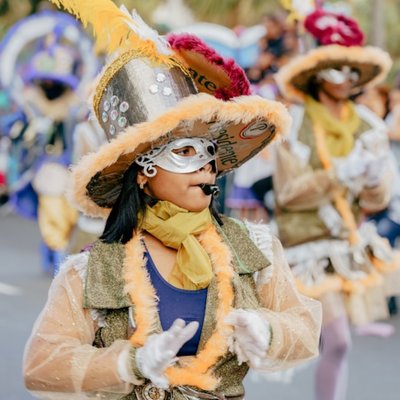- Dictionary
RELATED ARTICLES
legend(
leh
-
jihnd
)A noun is a word referring to a person, animal, place, thing, feeling, or idea (e.g., man, dog, house).
1. (story)
a. la leyenda (F)
(f) means that a noun is feminine. Spanish nouns have a gender, which is either feminine (like la mujer or la luna) or masculine (like el hombre or el sol).
The legend of Hercules has been told for centuries.La leyenda de Hércules se ha contado desde hace siglos.
a. las leyendas (F)
(f) means that a noun is feminine. Spanish nouns have a gender, which is either feminine (like la mujer or la luna) or masculine (like el hombre or el sol).
Annie Oakley, Sitting Bull, and Buffalo Bill are important figures in Wild West legend.Annie Oakley, Sitting Bull y Buffalo Bill son personajes importantes en las leyendas del Lejano Oeste.
a. la leyenda (F)
(f) means that a noun is feminine. Spanish nouns have a gender, which is either feminine (like la mujer or la luna) or masculine (like el hombre or el sol).
Jesse Owens became a legend when he won his first gold medal.Jesse Owens se convirtió en leyenda cuando ganó su primera medalla de oro.
b. el mito (M)
(m) means that a noun is masculine. Spanish nouns have a gender, which is either feminine (like la mujer or la luna) or masculine (like el hombre or el sol).
The firefighter became a living legend after saving the lives of 100 people.El bombero se convirtió en mito viviente después de salvarle la vida a cien personas.
4. (map key)
a. los signos convencionales (M)
(m) means that a noun is masculine. Spanish nouns have a gender, which is either feminine (like la mujer or la luna) or masculine (like el hombre or el sol).
The legend is in the lower left corner of the map.Los signos convencionales se encuentran en la esquina inferior izquierda del mapa.
b. la leyenda (F)
(f) means that a noun is feminine. Spanish nouns have a gender, which is either feminine (like la mujer or la luna) or masculine (like el hombre or el sol).
According to the legend, the brown areas have high elevation.De acuerdo con la leyenda, las áreas marrones son de alta elevación.
c. la clave (F)
(f) means that a noun is feminine. Spanish nouns have a gender, which is either feminine (like la mujer or la luna) or masculine (like el hombre or el sol).
Look at the legend to make sure you're interpreting the map correctly.Consulta la leyenda para asegurarte de que estés interpretando el mapa correctamente.
a. la leyenda (F)
(f) means that a noun is feminine. Spanish nouns have a gender, which is either feminine (like la mujer or la luna) or masculine (like el hombre or el sol).
The legend on this statue says it was built in 1800.La leyenda de esta estatua dice que fue construida en 1800.
Examples
Phrases
Other Dictionaries
Explore the meaning of legend in our family of products.
Random Word
Roll the dice and learn a new word now!
Want to Learn Spanish?
Spanish learning for everyone. For free.























